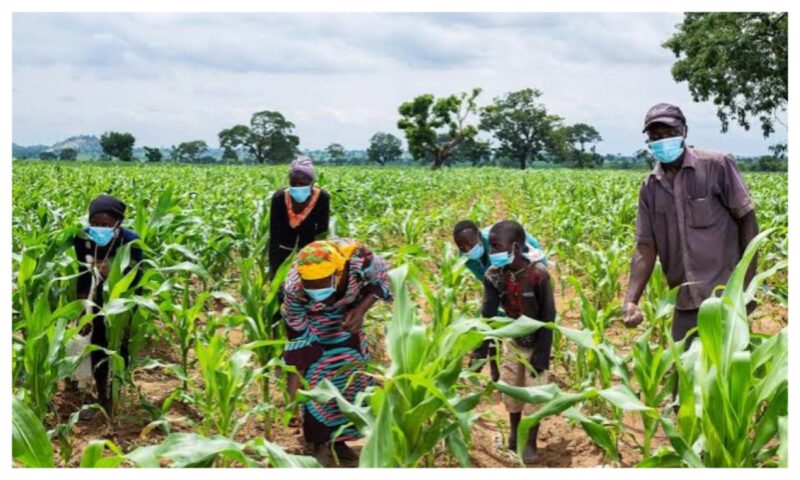In recent interviews with the NAN, experts have raised concerns that the ongoing inconsistent rainfall could severely impact food harvests in Nigeria for 2024 and beyond.
Ms. Gloria Bulus, an environmental expert and founder of the Bridge-that-Gap Initiative, highlighted that irregular rainfall patterns are likely to lead to poor crop yields. She further noted that if rainfall occurs during the harvest period, it could damage crops, leading to increased food shortages and hunger.
“The inconsistencies in annual rainfall we have been experiencing mean we will also be experiencing poor yields.
Certain crops need to be planted at specific times to thrive. With these inconsistencies, the harvest of such crops will be affected.
These rain inconsistencies will ultimately increase food shortage and poverty among farmers. Poor yields will affect incomes, leading to higher food costs and elevated poverty levels in the country affected.”
Bulus explained.
Agriculture consultant Charles Idonije also weighed in, noting that while rain inconsistencies could affect food harvests, the impact may be mitigated by Nigeria’s soil quality, which retains groundwater well. He also pointed out that insecurity, particularly from insurgencies like Boko Haram and herdsmen conflicts, poses a significant threat to food security.
“However, serious farming, especially in northern regions, relies on irrigation systems.
Historical shortfalls in rainfall have been managed in the past, but current food security challenges are compounded by human factors.
The major factor against food insecurity is the ongoing Boko Haram/herdsmen insurgencies, which have become a persistent issue,” he said.
He emphasized that addressing these challenges requires government intervention in infrastructure development, such as mechanized farming, building more dams for effective irrigation, improving road networks, and providing agriculture financing.
“While natural factors play a role, human-induced issues are a major threat to our food security.”










Join our Channel...